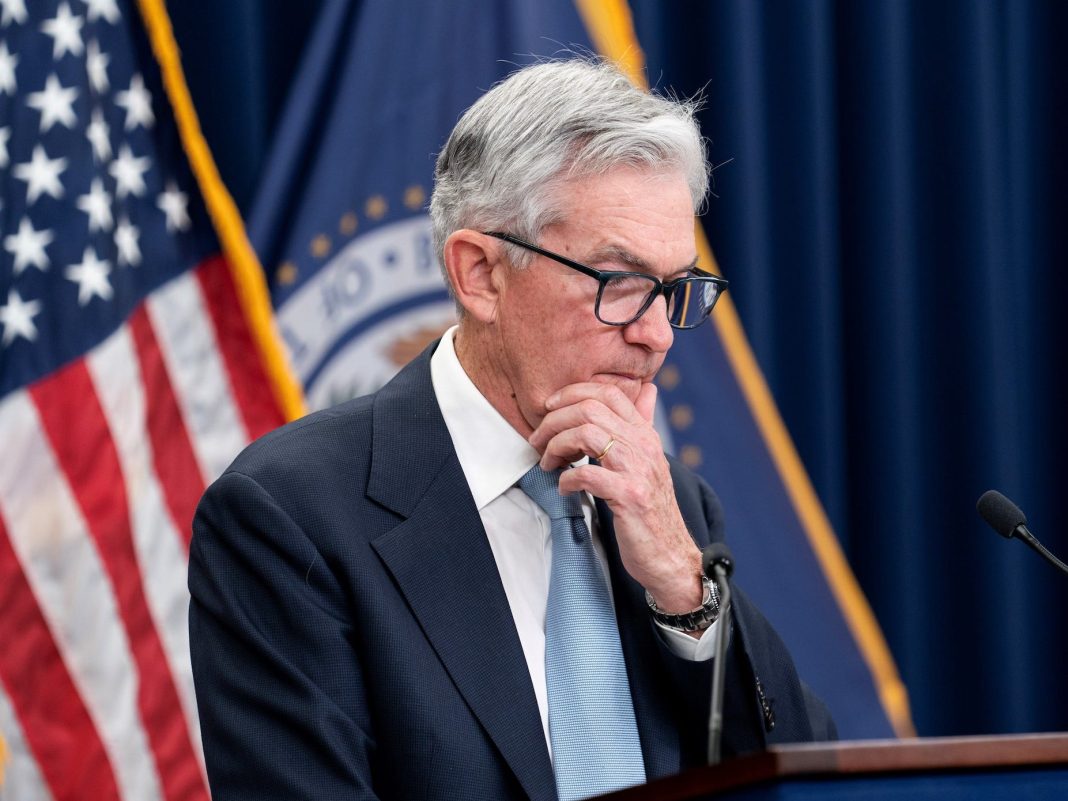- The Federal Reserve has made three big mistakes since inflation took off in 2021, according to UBS.
- The Fed’s policy errors have led to a loss of credibility with investors and will impact the broader economy, the bank said.
- “Today’s rate hike will probably have to be reversed in a relatively short space of time,” UBS said.
The Federal Reserve has done a lousy job navigating the surge in inflation over the past two years, according to UBS Global Wealth Management’s chief economist, Paul Donovan.
In a note to clients on Wednesday, Donovan said that the Fed has made three big mistakes since inflation broke out and it began hiking interest rates, and those mistakes will have an impact on the broader economy.
Fed chairman Jerome Powell hiked interest rates again on Wednesday, raising its benchmark rate by 25 basis points to a range of 5.25%-5.50%, representing a 22-year high in the fed funds rate.
“Today’s rate hike will probably have to be reversed in a relatively short space of time” because “the damage of the recent tightening policy has yet to take full effect in the US economy,” Donovan said. Today’s additional rate hike from the Fed gets to the root of what has went wrong.
These are the three big mistakes made by the Fed over the past two years, and how it will impact the economy, according to UBS.
1. “The Fed failed to communicate”
“Fed policy spin has been terrible… Spin is what counts. The Fed started well, describing 2021 inflation as transitory, which it was. But when inflation shifted to the wartime energy shock, the Fed failed to communicate the changes properly and its reputation suffered,” Donovan said. “If the Fed had done a better job of explaining the evolution of inflation, it might have been less paranoid about damaging its reputation.”
2. “The June 2022 policy errors”
“The Fed shifted the focus to consumer price data, which places more emphasis on fictional prices like owners equivalent rent than does other measures. It tore up forward guidance and the credibility that had been built up over years. And it did all of this based on a high inflation expectations number, when the inflation expectations number was revised down within days of the policy decision,” Donovan said.
“This reveals perhaps one of the biggest concerns with the current Fed policymakers. At least some policymakers seem to be treating the economic data as if it was trustworthy, not acknowledging the declining quality of economic figures,” Donovan said. “A sensible recognition of the declining quality of economic data would have stopped the blind hike, hike, hike strategy.”
3. The Fed failed to push back on greedflation
The Fed “was too late in talking about the profit led inflation episode that started late last year…Unfortunately, Fed Chair Powell has not looked into inflation in much detail and tends to treat the inflation episode since 2021 as a single, homogeneous event, not three distinct problems (requiring three distinct solutions),” Donovan said.
According to Donovan, the three drivers of inflation over the past year have been buoyant consumer spending, the war in Ukraine, and corporate greed.
The impact on the economy, and a solution for the Fed
While the US economy still appears on track to stick a soft landing, Donovan said the Fed’s over-tightening policies will inflict unnecessary harm on low-income groups, while also injecting unnecessary uncertainty and volatility into financial markets.
“The lessons from this tightening cycle are that the Fed needs to improve its communication, not perhaps [to the] general public, who neither know nor care what the Fed does, [but] to the markets. The Fed need sto take a more critical view of the data that it is receiving and have the humility to be less certain about the data. And above all else, it would help to have an economist running things,” Donovan said.









